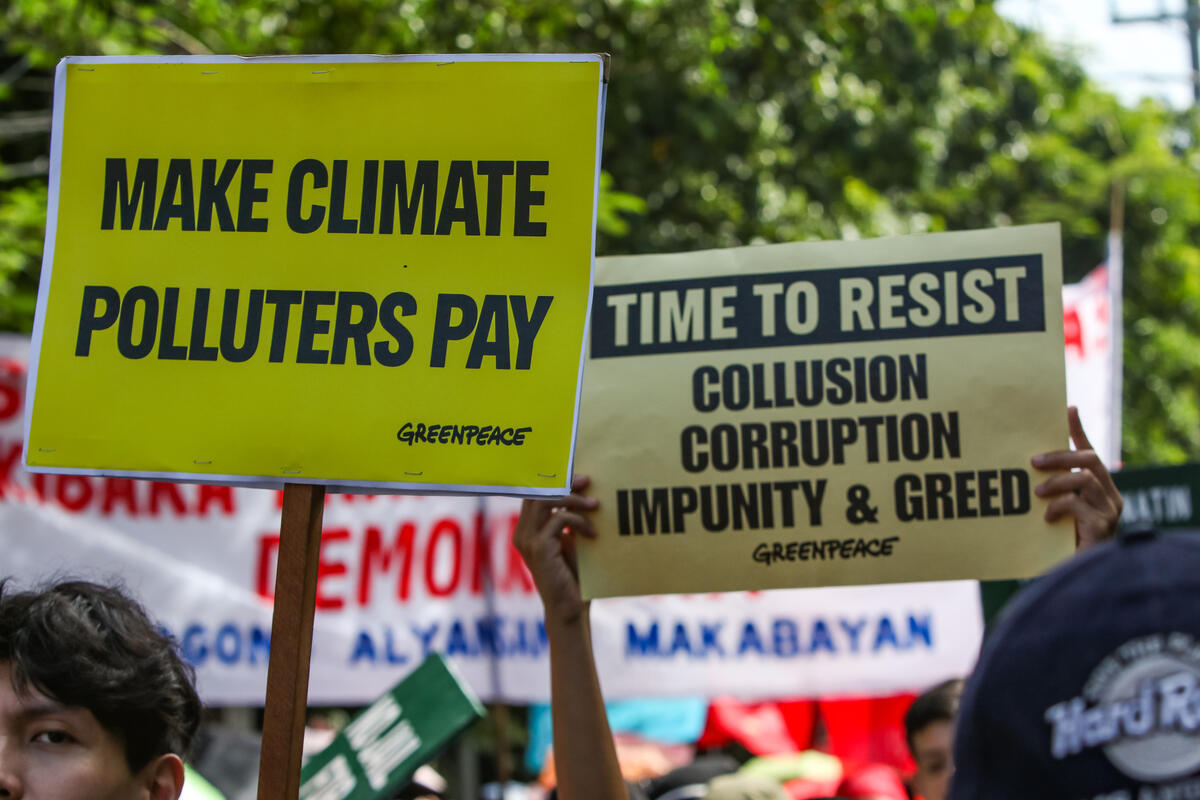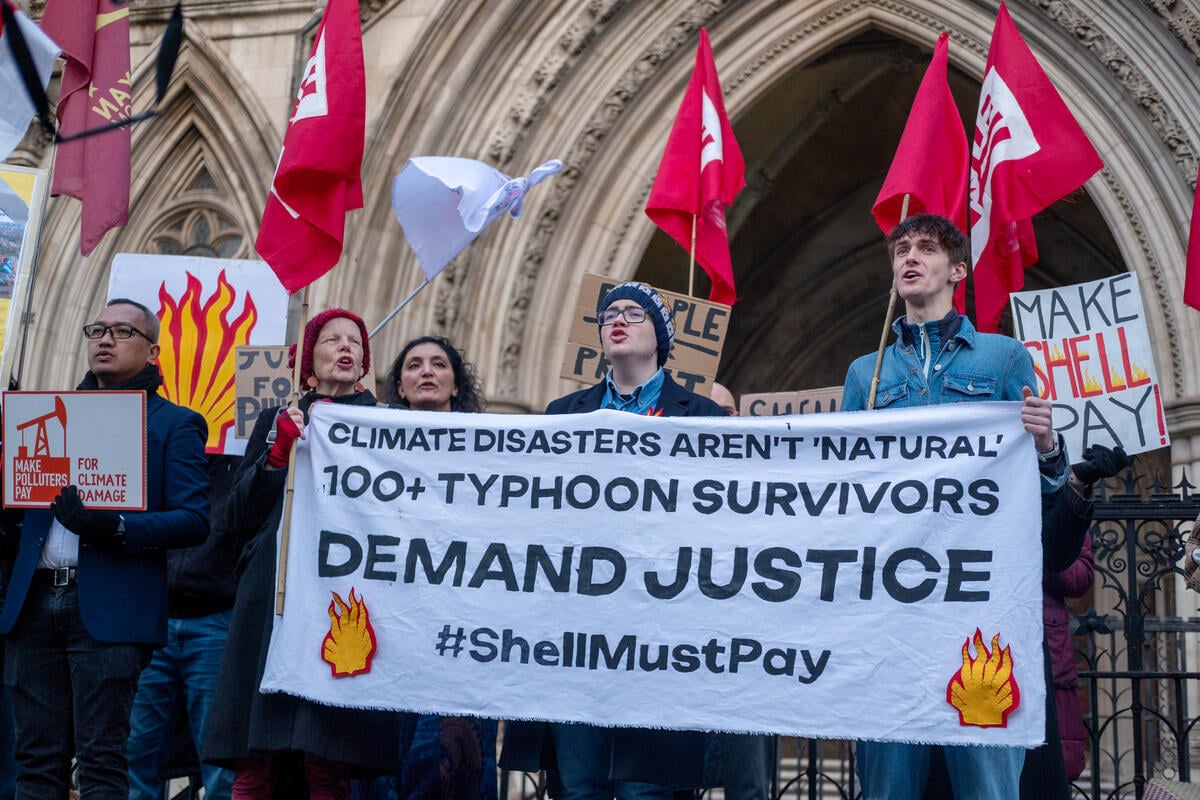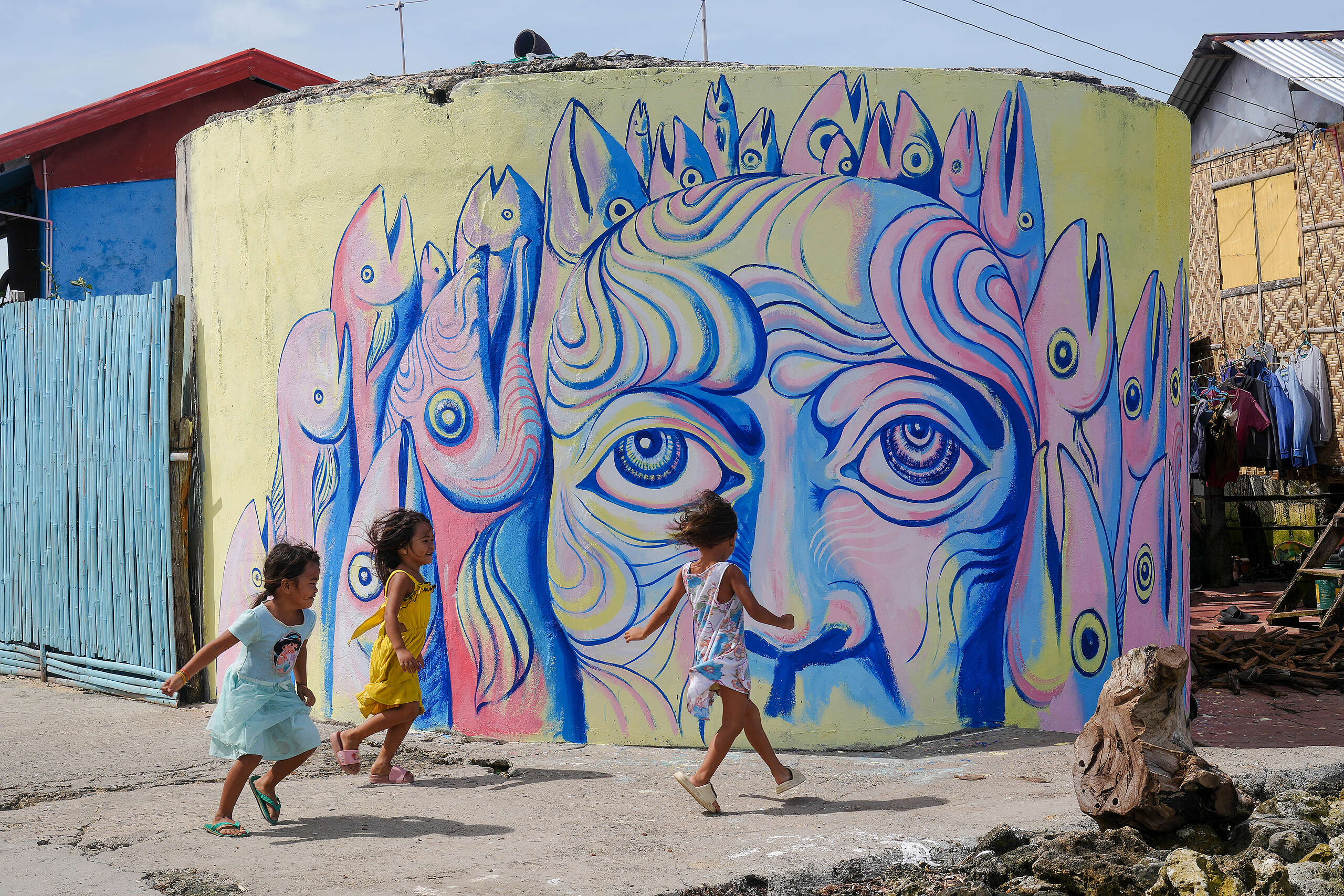It has been over a year since I first came to the sinking islands of Tubigon, Bohol – Batasan, Bilangbilangan, Ubay, and Inanuran. A year since I stepped off a small wooden boat and into a world where the sea had become both home and enemy. A year since I met faces that smiled despite saltwater lapping at their doorsteps, and children who played in streets that the tides now claim each afternoon.
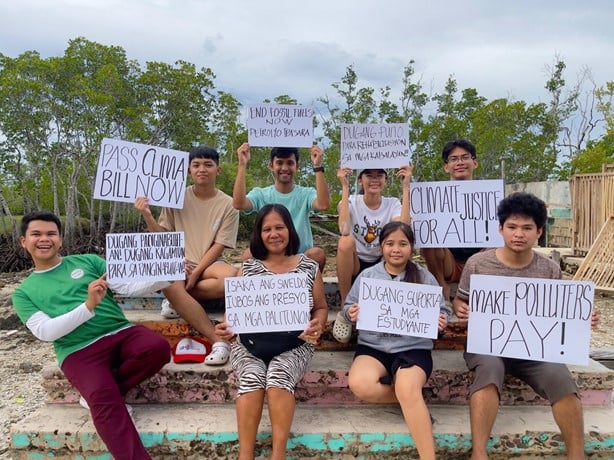
I went there with the intention of doing community work – talking about the climate crisis, listening to stories, offering what little I knew. But what I found was a mirror held up to humanity: people who understood loss more profoundly than any report or statistic could capture. Their houses tilted toward the water, and yet their laughter carried an unbreakable lightness.
Over months of conversations, I watched a transformation unfold quietly. They began to name what was happening, to connect the tides that swallowed their homes and the storms that tore their roofs away to a crisis far larger than their islands. The words “climate crisis,” “justice,” and “accountability” became part of their daily vocabulary. And from that language, a new power grew.
Now, they are standing up not just to the waves, but to one of the world’s largest fossil fuel companies: SHELL. They are filing a case, demanding reparations for the destruction inflicted upon their islands by Super Typhoon Odette (Rai). They are asking not for charity but forResponsibility — for the company that helped fuel this crisis to move away from the business of harm and to pay for the damages they have caused.
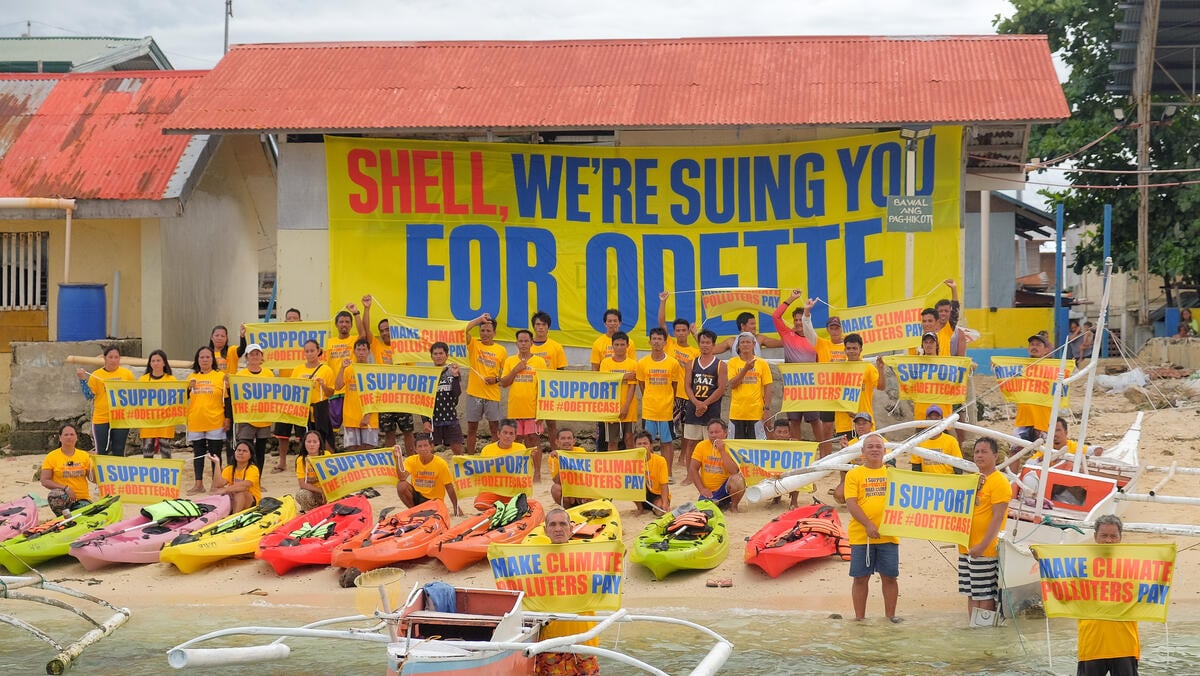
Shell alone earned over USD 40 billion or PHP 2.4 trillion in profit in 2023, while continuing to expand oil and gas projects that scientists warn will push the planet beyond the 1.5°C threshold.
The world’s biggest fossil fuel companies — Shell, BP, ExxonMobil, Equinor, Chevron, and TotalEnergies — collectively made over USD 219 billion or PHP 12.8 trillion that same year.
Meanwhile, the Philippines loses billions annually to climate-related disasters. The contrast is almost unbearable: profit and loss measured in entirely different currencies:money on one side, survival on the other.
How extraordinary, that a handful of islanders whose homes are drowning have the courage to take on a multinational giant. How extraordinary – and how tragic – that they have to.
Because this should not be their burden to carry. It should be the task of our governments, our institutions, our so-called leaders: to defend the people they swore to protect. Instead, too often, they stand hand-in-hand with the very polluters that exploit us.
In the Philippines, new fossil fuel projects continue to receive permits, and coal plants still power our grids while communities on the frontlines are left to fend for themselves. Billions in public funds, most of which either disappear through corruption and poor governance or are spent rebuilding what should have been protected in the first place.
They speak of “development” while their people rebuild their homes for the fifth, sixth, seventh time. They attend climate summits and return with photo opportunities instead of policies. They talk about resilience as if resilience were a badge of honor, not a symptom of abandonment.
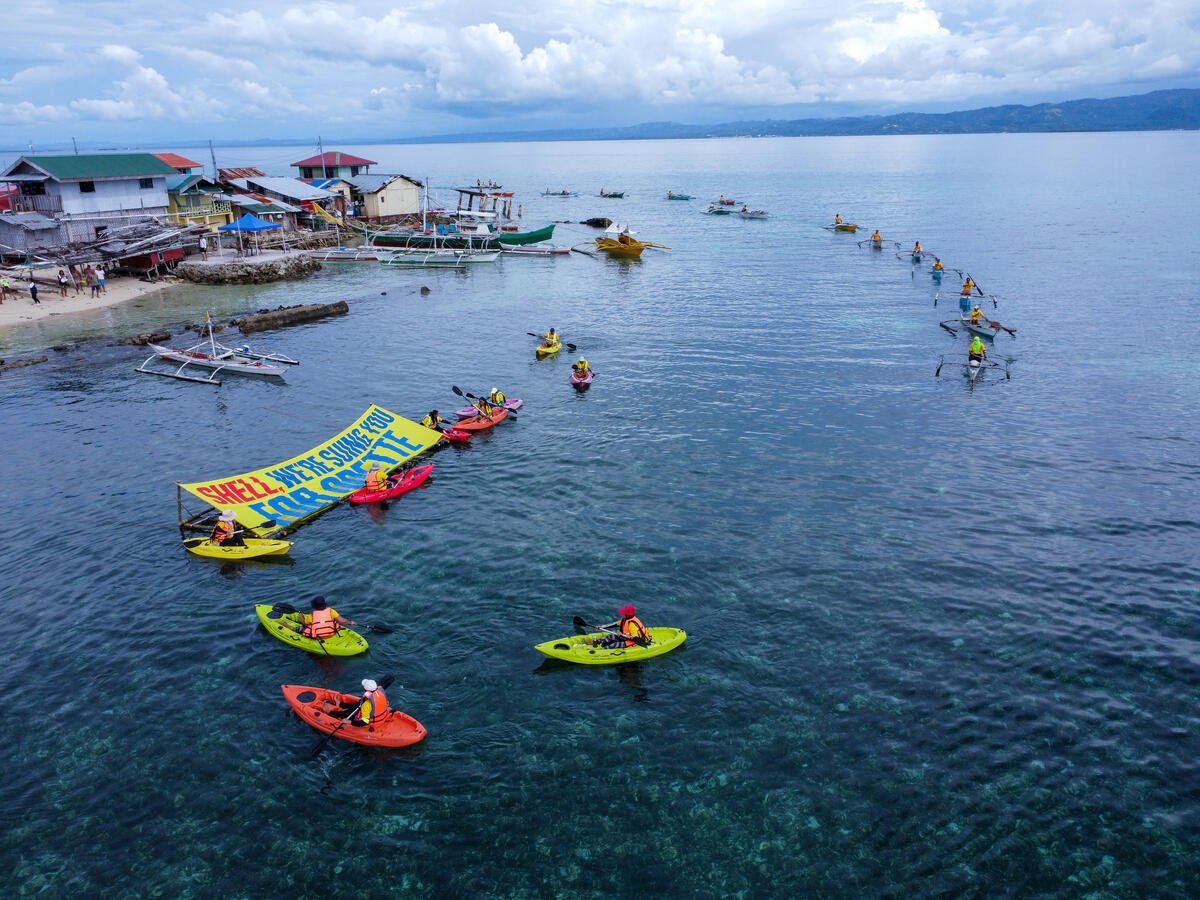
But in these islands, I have seen a different kind of resilience. One that carries dignity instead of denial. I have seen people organizing community clean-ups, turning lessons into campaigns. I have seen elders recalling the coastline as it once was, tracing the memory of land now lost to the tide.
And so the question presses harder each time I return to these islands: Will our governments and institutions be courageous enough to fight for their people?
As COP30 draws to an end, let us remember that courage is not just confined to boardrooms or podium speeches. It also lives in the calloused hands that rebuild broken homes, in mothers who send their children to school even when the classrooms flood, in the communities who refuse to disappear – who still plant mangroves in the same soil that keeps sinking.
The people of Batasan, Bilangbilangan, Ubay, and Inanuran have already found their courage. They have looked power in the eye and said, you will be accountable for what you have done.
The real question now is whether the rest of us will find the courage to stand beside them, to challenge comfort, to confront collusion, to name the systems that make us suffer.
Because courage is contagious.
And perhaps, the courage to do so is the only thing that will keep our world from drowning
Charles Zander Deluna is a student and youth climate activist from Bohol. He is a volunteer for Greenpeace Philippines and has been involved in different climate campaigns and community work. His interest in climate action started after experiencing the impacts of Super Typhoon Odette (Rai), which inspired him to help protect the environment and support vulnerable communities.

